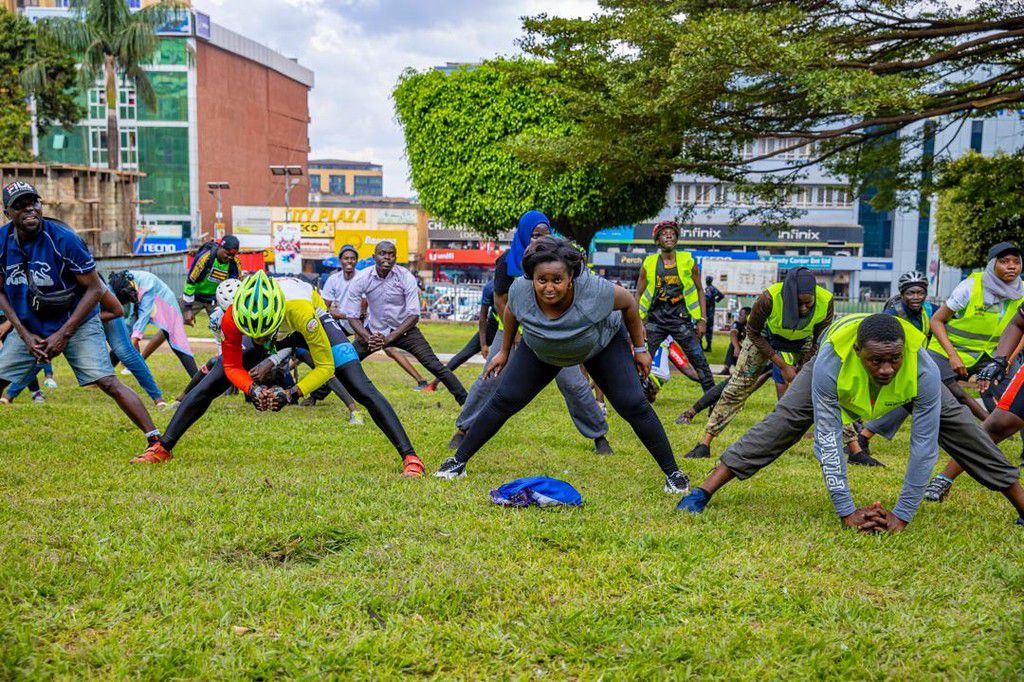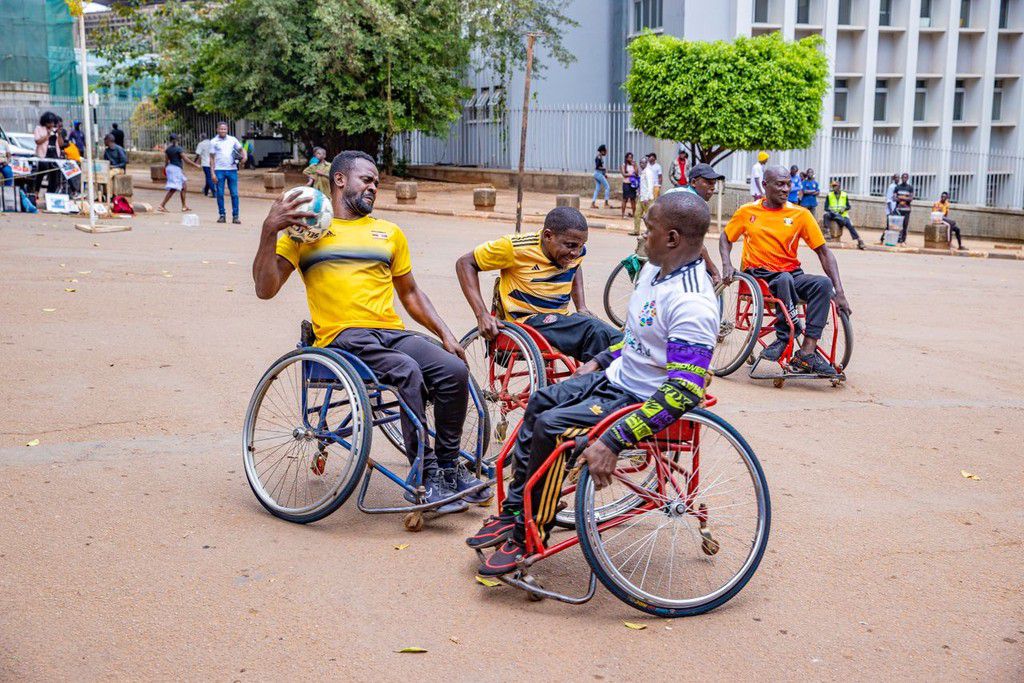Kampala streets transformed as car-free day sparks health, sustainability push
)
Instead of the usual honking horns, the streets were filled with laughter, cyclists, and children playing, as the city embraced a day dedicated to sustainability and health. Organised by Kampala Capital City Authority (KCCA), in partnership with the Ministry of Works and Transport, Uganda Police, and local partners like e-bee bicycles, the event aimed to promote eco-friendly transport, raise awareness about air quality, and encourage active lifestyles.
The day marked a crucial shift in how urban life is viewed in Kampala. Bicycle races, walkathons, and street art brought the community together, with families enjoying a variety of games and exhibitions in a city that, for once, became their playground.
A peaceful yoga session added a moment of calm to the lively atmosphere, with participants appreciating the rare experience of breathing clean air in a city usually dominated by fumes from cars and motorbikes.
“It’s refreshing to see Kampala like this,” said Sharon Kabatesi, who participated in the walk race. “It feels like the city belongs to us, not just the cars. I hope we have more days like this, putting health and the environment first.”

A standout moment was a bicycle race for persons with disabilities, showing that sustainable transport can be inclusive for all, not just the able-bodied.
Justus Akankwasa, KCCA’s Director of Engineering and Technical Services, highlighted the significance of Car Free Day in tackling Kampala’s transportation and environmental issues. “This initiative is part of our broader efforts to improve air quality and encourage active mobility. Reducing reliance on motor vehicles benefits both the environment and public health.”
Kampala faces growing challenges, from traffic congestion to worsening air quality. Car Free Day is part of a larger movement toward creating a more sustainable city, promoting cycling, walking, and other eco-friendly transportation options.
“This isn’t just about reducing traffic,” Akankwasa added. “It’s about improving residents’ health, cutting pollution, and making Kampala a more livable city.”

This year’s event coincided with World Clean Air Day, emphasizing the urgent need for action to combat climate change and its effects on air quality.
James Mugabe, an environmental activist, praised the initiative. “Car Free Day may seem small, but its impact is significant. It encourages people to rethink how they move around the city. Every bicycle ride or walk helps reduce carbon emissions and tackle climate change.”
For many residents, the event opened their eyes to the possibilities of a city designed for people, not cars. Plans are already underway to introduce more dedicated bicycle lanes and pedestrian walkways, as Kampala moves toward a more sustainable future.
“It’s not just about fun,” Akankwasa concluded. “It’s about building a future where sustainable transport becomes the norm, not the exception.”
)
)
)
)
)
)
)